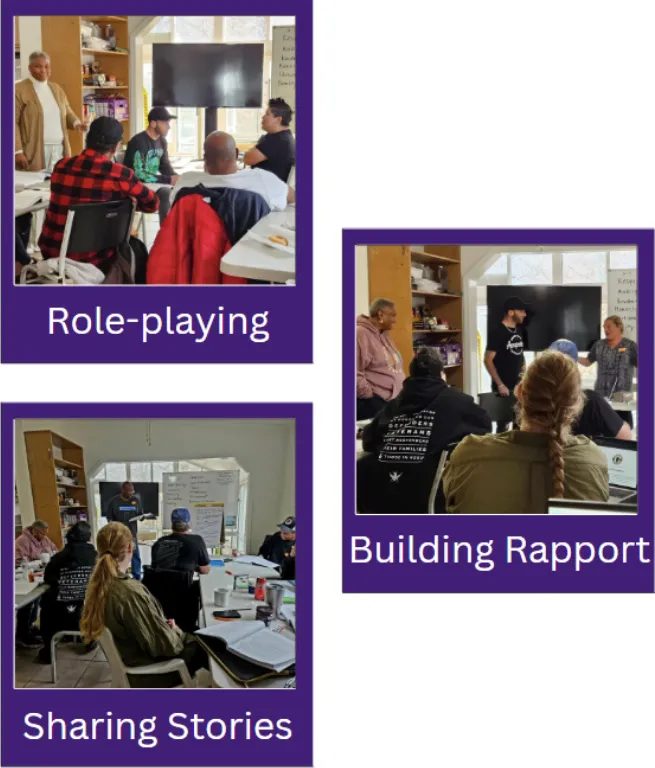ABOUT THE TRAINING
JPR Training Curriculum
The Jordan Peer Recovery (JPR) Training Curriculum focuses on culturally-sensitive, trauma-informed peer support. It is approved by SAMHSA and used nationwide
Peers in demand
Peer Support Specialist are expected to play an increasing important role in the mental health workforce. In the future, the need for peer support is growing as more people in the US experience, mental health conditions and substance use disorder, peer support specialists can help improve access to supports and outcomes for those individuals.
Just because we start our careers in "peer" position does not mean that we can't advance through a variety of roles.
Many of us start off in peer support roles and transition to administrative or executive roles that may or may not directly relate to peer support. Our lived experience serves us and the people we serve well no matter what the role.


Peers in demand
Peer Support Specialist are expected to play an increasing important role in the mental health workforce. In the future, the need for peer support is growing as more people in the US experience, mental health conditions and substance use disorder, peer support specialists can help improve access to supports and outcomes for those individuals.
Just because we start our careers in "peer" position does not mean that we can't advance through a variety of roles.
Many of us start off in peer support roles and transition to administrative or executive roles that may or may not directly relate to peer support. Our lived experience serves us and the people we serve well no matter what the role.
We want to create careers for peers not just jobs.

Importance of
Peer Training
and Supervision
Improved outcomes: supervisors can help peer workers improve their performance and deliver better outcomes.
Enhancing skills: supervisors can help peer workers develop problem solving skills. Make clear decisions and increase their satisfaction.
Building Relationships: supervisors can help build trust and promote effective practice between the supervisor and supervised.
Supporting the organization: Supervision can help an organization achieve its mission and objective manage. Resources and improve morale and retention.
Encouraging open communication: Supportive supervision encourages open communication in teen building approach to problem solving.
Peer support workers help people in recovery by sharing their own lived experience in providing practical guidance that can help people develop goals, build skills and create strategies for self-empowerment. Research shows that peer supports can improve people’s well-being, including their self-esteem, confidence and social skills.
Training Methodology
Interactive Techniques:
Personal sharing, group discussions, role-playing, and reflection exercises
Skill Development:
Active listening, empathy, boundary setting, and nonjudgmental demonstration of how to support others using personal experience without traumatizing.
We are Trauma informed
Core Values:
Respecting individual cultures and values while staying grounded in our own. Appreciating differences and honoring diverse perspectives
Creating Safe Spaces:
Fostering a confidential and comfortable environment for open sharing.

Where peers work
Peers work in both private and public setting growing daily as the need arise for people with lived experience to support others that are having trouble transitioning from adverse situations.

EMT Services

Department of Correction

Emergency Departments

Emergency Departments

Addiction Treatment Center

Police Departments

Community Health Centers

Vocational Rehabilitation

Child Welfare Agencies

Community Based Respite Services

Homeless Shelters

Social Services

Jails

Prison

Hospitals

Drug Court
AHBacon Recovery Resources
We believe in the power of recovery to transform lives.
© 2025 AHBacon Recovery Resources - All Rights Reserved.



